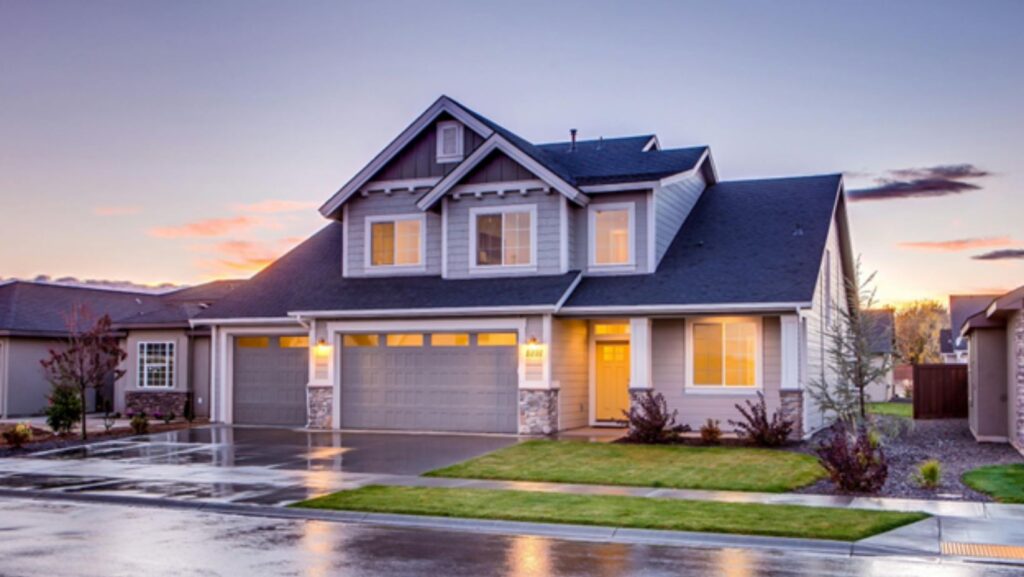Choosing the right roofing solution isn’t just about aesthetics; it’s about finding a durable, cost-effective option that stands up to the elements and protects your home. If you’re in need of expert advice or installation, a skilled roofer in Fayetteville can help assess your specific needs and recommend the best materials for your local climate. This article will guide you through the process, offering six key tips to follow when on the hunt for the perfect roof.
Whether you’re building a new home or replacing an old roof, the choices can be overwhelming. From materials and styles to installation techniques and maintenance, we’ll help you navigate the world of roofing solutions with confidence.
Understand Your Roofing Needs
Choosing the right roofing solution hinges on comprehending one’s specific roofing needs. Essential factors affect this decision, such as the home’s location, local climate conditions, and architectural style.
The location of a home greatly influences the roofing material choice. For instance, homes situated in areas prone to hurricanes, tornadoes, or wildfires need highly durable, weather-resistant materials such as metal roofing or slate. On the off-chance of living in a hot and sunny climate, lighter colored roofs may be more suitable since they reflect sunlight, keeping homes cooler.
Research Roofing Materials
Defining the most conducive roofing material demarcates the first step in finding an optimal roofing solution. A plethora of options exist in a variety of materials, each with unique attributes, longevity, and durability. Therefore, comprehensively understanding the characteristics of each material significantly aids in making an informed decision that satisfies every individual need.
Subsequently, explore the options for roofing repairs. The ease and cost of repair vary among materials. For instance, asphalt shingles offer a cost-effective solution, with relatively straightforward and inexpensive repairs. On the other hand, repairs to slate or tile roofs can be more complex and costly, considering specialized techniques and skillsets required. Thus, the prospective requirement of repairs holds critical importance in choosing the right roofing material.
Evaluate Contractor Experience and Reputation
Selecting an experienced, reputable contractor is a critical part of finding the right roofing solution. Experience is indicative of a contractor’s ability to handle various types of roofing repairs and installations expertly. A contractor with an extensive track record typically possesses a wealth of knowledge about different roofing materials, repair techniques, and warranties, contributing to an assured, superior-quality job.

For instance, an experienced contractor can navigate potential issues with asphalt shingles, such as blistering, buckling, or curling, more effectively than a less-experienced one. Similarly, they’re aptly positioned to handle more complex matters associated with slate or tile roofs. Essentially, their experience helps avoid common pitfalls, leading to more reliable, cost-effective outcomes.
Reputation, on the other hand, acts as a testament to a contractor’s reliability and consistency. Contractors with a positive reputation have likely completed several projects satisfactorily and maintained high standards over time. They’re likely to offer sound advice on warranties, understanding their significance in protecting against unforeseen expenses and ensuring top-quality materials.
Factor in Energy Efficiency
Once the primary concerns such as warranty, repairs, durability, and cost-effectiveness have been addressed, energy efficiency becomes the next crucial aspect to consider in finding the right roofing solution. Featuring high on the list of the six essential tips, energy-efficient roofs contribute significantly to both the comfort of the house and the energy saving capabilities over the long term.
An energy-efficient roof mitigates heat transfer effectively, which is of paramount importance in maintaining a consistent indoor temperature. This capability directly lessens the demand on home heating and cooling systems, reducing energy consumption as a result.
For instance, metal roofs, known for their durability and minimal need for roofing repairs, are simultaneously reputed for their energy-efficient qualities. They reflect sunlight rather than absorb it, helping to prevent excessive heat intake during the hotter periods.
Budget for Maintenance and Repairs
Allocating funds for maintenance and repairs is essential when choosing a roofing solution. ROOFING materials depreciate over time, and periodic repairs and maintenance become inevitable. Despite the fact that asphalt shingles are generally more cost-effective and easier to repair, unforeseen expenses can quickly mount up if proper maintenance is not carried out.

For instance, commercial-grade metal roofs can last up to 70 years with appropriate care. However, neglecting to address minor drips or damage in a timely manner, paves the way for severe weather damage. Ultimately resulting in more extensive repairs.
Furthermore, the scope of maintenance varies across materials. A slate roof, revered for its durability and timeless appeal, commands regular inspection for chipped or slipping slates. As such, the initial low cost of certain roofing materials may conceal the higher costs of future upkeep and repairs. Considering maintenance costs in the initial budget, accordingly aids in making a wise roofing investment.
Understand Warranty and Insurance Coverage
Securing a solid warranty protects homeowners during the process of roofing repairs. Warranties serve as a safeguard against unanticipated expenses and substantiate the quality of materials used. Different manufacturers offer varying warranties; hence, homeowners must diligently review and comprehend the terms and conditions.
A comprehensive warranty encompasses not just the material, but also the workmanship. For instance, some warranties may cover asphalt shingles but not the labor expense for roofing repairs. Thus, a clear understanding of what the warranty includes eliminates future financial burdens.
